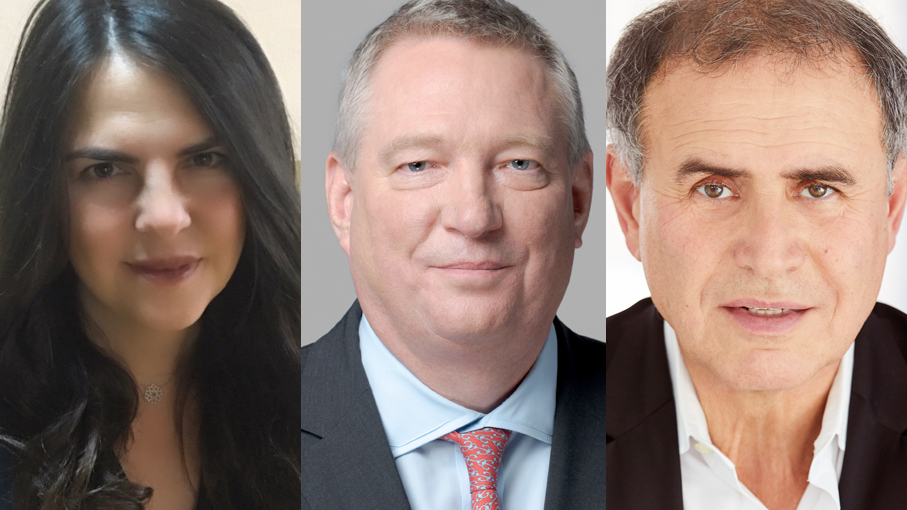
Investing in a circular economy can help fight climate change, as well as reduce waste and energy consumption.
Nothing in nature goes to waste; its circularity is what maintains it. Circularity is what we need to achieve with our economy. As well as making sense environmentally, it can create new and decent jobs, and positively impact disadvantaged communities.
A circular economy underpins sustainable long-term growth and makes good business sense. Second life is given to products or their components through recycling and reusing. Their life cycle is extended, creating secondary markets, and waste becomes a raw material spurring new businesses that support this process. This concept imitates nature, where everything has purpose and value; everything is used and waste becomes a resource.
Local level
To address climate change, we need circular economies globally. However, this system transformation needs to take hold at a local, community-based level. Indeed, dealing with daily waste is a localised issue. Additionally, it presents an opportunity in poorer countries. In dealing with the problem, many low-income nations spur ingenuity — one need only to look at the many reuses of discarded flip-flops — to demonstrate their part in environmentalism. Yes, it is more difficult for developing countries to wean themselves off fossil fuels, but they could be — and in some instances are — world leaders in recycling.
Local communities in emerging market regions play an essential role. They have a willing and captive labour force; however, too many of these workers live in harsh, squalid conditions. Around the world, be it the people who pick over waste mountains in India or the cardboard collectors in Hong Kong, they are all subject to notoriously low incomes. Society often ignores them, undervaluing their contribution. They need protection from intermediaries who exploit their vulnerabilities, and rewards for their work that reflects their value in a circular economy.
Ironically, those who live in these communities experience the immediate benefit of clean-up efforts. When a clean-up project offers training, safe working conditions or monetary incentives, it actively empowers communities to participate in sustainability efforts.
And there is no doubt over whether there is enough scale to make it economically viable. Currently, the amount of waste generated in most countries continues to increase overall in line with population. For example, a person living in the Organisation for Economic Co-operation and Development area generates an average of 525 kilograms (kg) of waste per year; 20kg more than in 1990 but 35kg less than in 2000. The quantities, compositions and origins of waste differ between countries relating to the economy’s structure.
As clear as glass
Creating circularity needs competitors to come together to leverage their joint ability to find solutions and build new infrastructure. The glass container industry has recognised this and joined forces, aiming to become circular and climate-neutral by 2050.
Glass has a unique place in the circular economy as it can be recycled endlessly without quality degradation. This has other environmental benefits beyond reducing landfill waste. Production using recycled glass reduces emissions by up to 45% compared to pure glass as it melts at a lower temperature — energy saving is inevitable.
The Furnace for the Future project is a collective industry initiative supported by 19 glass companies. They are developing technology to significantly reduce carbon dioxide emissions from container glass furnaces by replacing natural gas currently used with renewable electricity. Solving carbon emissions will enable the industry to offer a climate-neutral packaging solution while being fully circular.
Wrapping both environmental and social issues into a business model is powerful, and Turkey-based Şişecam provides proof of that. Şişecam centres its investments around the concept of circularity. The investments made enable unregistered workers across Turkey to gain access to formal employment, as it incentivises them to establish, install and operate sorting plants.
In this way, Şişecam contributes to economic development with decent work in the regions it operates within, regardless of age, gender or nationality. Additionally, the Glass and Re-Glass Project, initiated by Şişecam in 2011, increases social awareness of glass waste collection.
In addition, the energy savings achieved through recycling are equivalent to the heating and hot water needs of approximately 70,000 houses for one year. This equates to preventing carbon dioxide emissions that to offset would need 48 million trees in a year. To call this compelling is an understatement.
If managed well, the circular economy has the potential to manage resources better and reduce societal crises, ultimately rebuilding more resistant local economies. Product manufacturers also have incentives, as thriving economies are good for business. As with nature, these symbiotic relationships will secure our future.
Nouriel Roubini is chairman and CEO of Roubini Macro Associates; Kubra Koldemir is co-founder of SustainFinance and sustainability researcher at Argüden Governance Academy; and Paul Smith is co-founder of SustainFinance and former president of CFA Institute.


